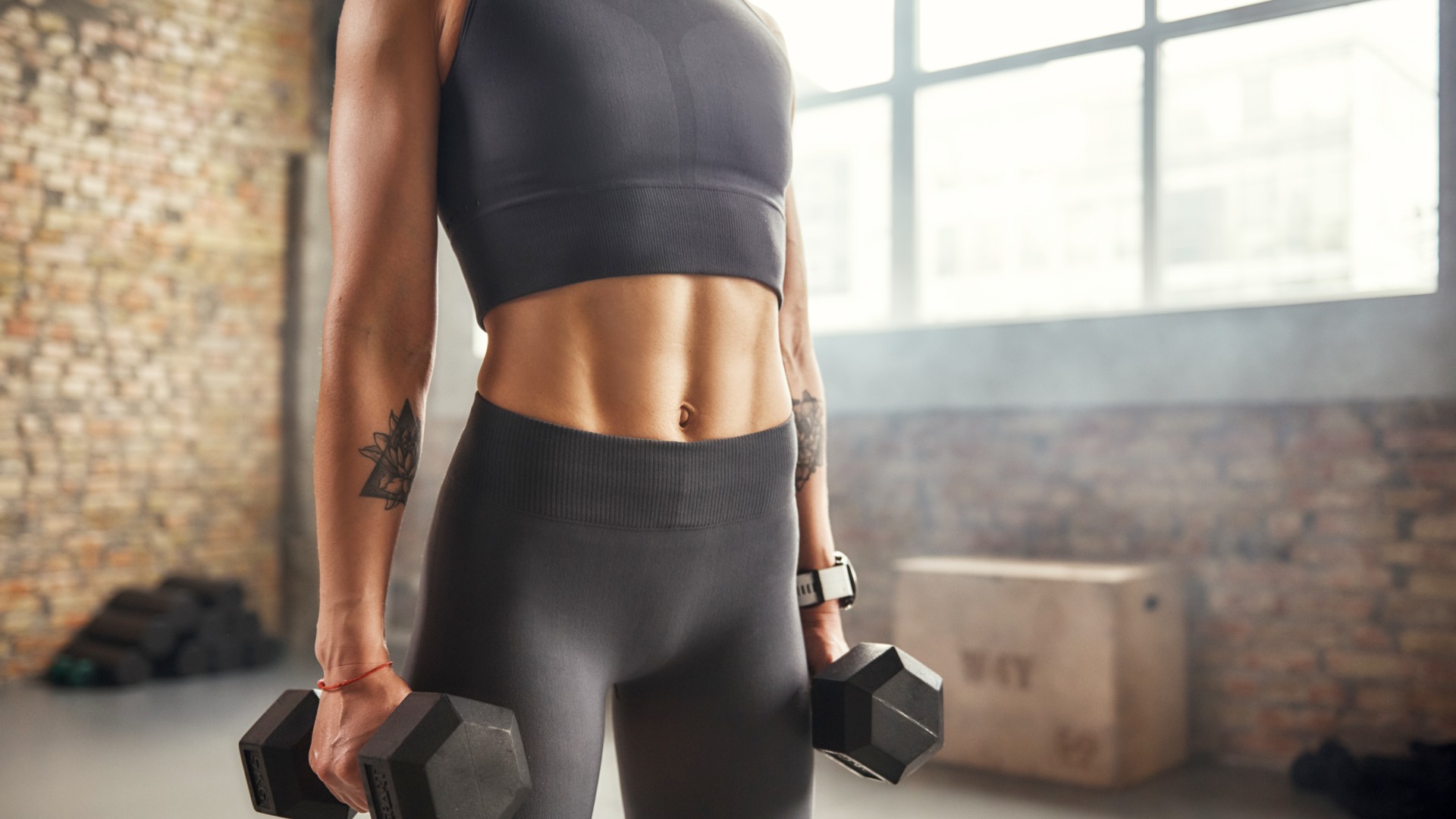How to do the in-and-out abs exercise to build a strong core

Targeting your lower abs might not be high on your priority list, but whether or not they are, it’s a great idea to strengthen your core muscles as a whole when you train them, not just one muscle group.
That means looking at exercises in all planes of motion so that you drill into these muscle groups using a 360-degree approach, and the lower abs shouldn’t be neglected.
A whole bunch of lower abs exercises can help you sculpt stronger abs, but the in-and-out exercise is one of my go-to core moves for building a fire in my belly and engaging my hip flexor muscles. Here’s how to do it, the benefits and how to add it to your weight training.
What exercise works the lower abs?
The rectus abdominis muscles run down the front of your stomach and can be targeted with some of the best abs exercises that involve spinal flexion.
Generally speaking, exercises that draw your knees or legs toward your body engage the lower section of these abdominal muscles — think mountain climbers, leg raises, or reverse crunches — alongside core-stabilization exercises like hollow rock, hollow hold, or planks.
In-and-outs raise your legs and lower them, moving from side to side. This engages the lower abs, obliques, hip flexors, quads and hamstrings. The muscles surrounding the lower back are also active, but your lower back shouldn’t be the target recruiter during the movement.
As mentioned, the abs are just one muscle group that comprises the core, so although I love lower abs exercises, remember to train multiple muscle groups to build and strengthen your torso. The most efficient way to do this is by prioritizing compound exercises (multi-muscle moves) which also teach muscles to recruit and coordinate together.
What exercise is best for lower abs?
There’s no one-size-fits-all exercise, so what might feel good for one person may not suit another. That said, if Russian twists work for your back, you might enjoy the in-and-out exercise. I like to position a weight like one of the best kettlebells in front of me, or dumbbells to give me something to lift my legs over.
How to do the in-and-out exercise with proper form
- Use your body weight or place a weight in front of you
- Sit with your legs extended in front of you and place your hands on the floor close to your hips (place your hands across your chest or behind your head to progress the move)
- Engage your core and slightly lean back
- Keep your chest proud and back completely straight. Pull your shoulders down
- Lift your legs away from the ground, softly bend the knees and press them together
- Sweep your legs up and over the weight, initiating a gentle twist from your torso and rotating the hips
- Pause, then drive your legs over to the other side, creating an arc. Continue moving from side to side for reps.
Straightening your legs will make the exercise harder, but whichever option you choose, ensure you’re initiating the movement from your core, otherwise, your hip flexors or lower back will take over the action.
If you’re still learning to engage your core properly, this might not be the exercise for you. Stop if you experience pain, reduce the reps, or rest between reps as you build up to the proper movement.
When I train people with “lazy” glutes, I include glute activation exercises before the big functional lifts to help activate them. If you find the same with your core muscles, try ab contractions first to keep the intensity in your abs.
To do this, lie on your back, bend your knees and place your feet on the floor. Gently press your lower back into the ground and tuck your pelvis toward your spine. As you draw your belly button toward your spine, tighten your stomach muscles. Practice engaging your abs for 30 seconds, relax and repeat.
Are lower abs the hardest to get?
You can build your abs using a variety of exercises that target the upper and lower areas of the muscles, but how much fat you store around your stomach will determine whether or not you can see muscle definition.
Diet plays a role alongside exercise and lifestyle choices that prioritize your wellbeing, which may be one of the reasons you can’t see your abs yet despite working out, but try not to make muscle definition the only goal — a strong core is functional and supports safe movement during daily activities and exercise.
More from Tom’s Guide
Source link


